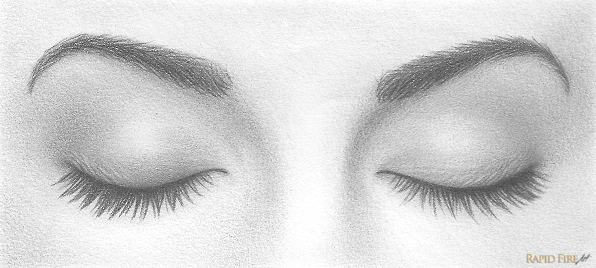FWP:
SETS == EXCLAMATION
EYES {3,1}
The commentators point out the strong similarity with {52,1}, and rightly so; Josh in fact wishes that one of them had been stricken from the divan, and it's hard to blame him. Not much really differentiates the two. For more on this kind of repetition, see {49,1}.
There's another such 'duplicate' verse in this ghazal; see {72,7} for further discussion.
Note for grammar fans: On the transitive/intransitive pleasures of kholnā , 'to open', versus muñdnā , 'to become closed', see {52,1}.
If this verse can claim any small extra merit beyond its companion, it's in the wordplay involving 'sick' [bīmār] and 'eyes'. The prime example is {22,4}, in which the lover expresses himself as content to be bīmār , because it means sharing a name with the beloved's eyes; the beloved's eyes are traditionally called 'the eyes of a sick person' [chashm-e bīmār] because they are lowered and unresponsive. In the present verse the eyes are in the first line, and are not chashm but āñkheñ , while nothing is done to connect them with bīmār in the second line. Still the connection is there, by implication at least, and it's hard to believe it never occurred to Ghalib, or that he didn't count on his original audience to enjoy it as a small extra dollop of pleasure.
For more on the beloved's visits to the lover, see {106,2}. Since the speaker's eyes have already closed, this verse belongs to the 'dead lover speaks' set; for more on these, see {57,1}.

Nazm:
kholte hī kholte is a description of the situation of waiting. Another verse with this same theme has already passed: {52,1}. (75)
== Nazm page 75